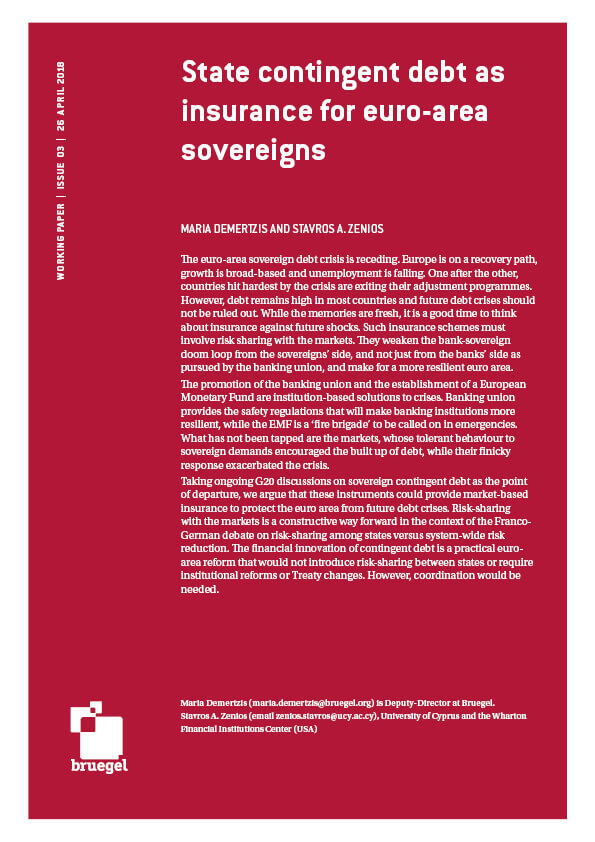Working Paper
State contingent debt as insurance for euro-area sovereigns
Since the financial crisis, EU countries' economies have recovered to the point that they are exiting their adjustment programmes. Institutional stability mechanisms have been improved at the European level, with the promotion of the banking union and the establishment of a European Monetary Fund, for instance. However, the authors argue that such crisis contingencies should include markets in their risk-sharing, which would require better coordination with institutions.
The euro-area sovereign debt crisis is receding. Europe is on a recovery path, growth is broad-based and unemployment is falling. One after the other, countries hit hardest by the crisis are exiting their adjustment programmes. However, debt remains high in most countries and future debt crises should not be ruled out. While the memories are fresh, it is a good time to think about insurance against future shocks. Such insurance schemes must involve risk sharing with the markets. They weaken the bank-sovereign doom loop from the sovereigns’ side, and not just from the banks’ side as pursued by the banking union, and make for a more resilient euro area.
The promotion of the banking union and the establishment of a European Monetary Fund are institution-based solutions to crises. Banking union provides the safety regulations that will make banking institutions more resilient, while the EMF is a ‘fire brigade’ to be called on in emergencies. What has not been tapped are the markets, whose tolerant behaviour to sovereign demands encouraged the built up of debt, while their finicky response exacerbated the crisis.
Taking ongoing G20 discussions on sovereign contingent debt as the point of departure, the authors argue that these instruments could provide market-based insurance to protect the euro area from future debt crises. Risk-sharing with the markets is a constructive way forward in the context of the Franco-German debate on risk-sharing among states versus system-wide risk reduction. The financial innovation of contingent debt is a practical euro-area reform that would not introduce risk-sharing between states or require institutional reforms or Treaty changes. However, coordination would be needed.











